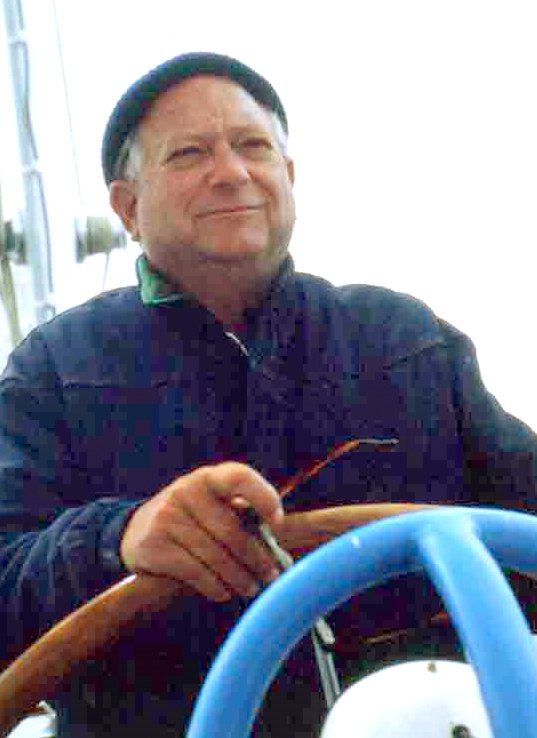“A detached attitude toward the problems of others is not illegal.”
Fuente: Demon Princes (1964-1981), The Killing Machine (1964), Chapter 3 (p. 180)
John Holbrook Vance ,[1] más conocido por su pseudónimo Jack Vance, fue un escritor de fantasía y ciencia ficción nacido en San Francisco, California . Es autor, entre otras, de la saga Planeta de la aventura . Utilizó diversos pseudónimos — Peter Held, John Holbrook, John van See, Alan Wade — para firmar su trabajo, escribiendo incluso bajo el policiaco de Ellery Queen tres novelas: The Madman Theory, The Four Johns y A Room to Die in. Wikipedia

“A detached attitude toward the problems of others is not illegal.”
Fuente: Demon Princes (1964-1981), The Killing Machine (1964), Chapter 3 (p. 180)
“Destiny could not bring him this far only to deal him failure!”
Fuente: Demon Princes (1964-1981), The Star King (1964), Chapter 10 (p. 122)
“The tighter the discipline of an art form, the more subjective the criteria of taste.”
Fuente: Demon Princes (1964-1981), The Star King (1964), Chapter 7 (p. 79)
Fuente: Demon Princes (1964-1981), The Star King (1964), Chapter 3 (pp. 32-33)
“Revenge is not an ignoble motive, when it works to a productive end.”
Fuente: Demon Princes (1964-1981), The Star King (1964), Chapter 2 (p. 28)
“You will have useful work: the destruction of evil men. What work could be more useful?”
Fuente: Demon Princes (1964-1981), The Star King (1964), Chapter 2 (p. 27)
Bah!" muttered Hurtiancz. "By the same token, a sensible man need listen to but a single word in order to recognize the whole for egregious nonsense."
"Morreion", Ch. 8
Dying Earth (1950-1984), Rhialto the Marvellous (1984)
“Absolutely, and in all respects!” declared Cugel. “Recognizing, of course, that these fundamental verities vary from region to region, and even from person to person.”
Fuente: Dying Earth (1950-1984), Cugel's Saga (1983), Chapter 3, section 2, "Faucelme"
“For the sake of gain I’d compromise the art of my grandmother,” muttered Zamp under his breath.
Fuente: Showboat World (1975), Chapter 14 (p. 168)
“You’re sure you want to look into these cognates? You might see things you wouldn’t like.”
“So long as I know the truth, I don’t care whether I like it or not.”
Section 6 (p. 186)
Short fiction, Rumfuddle (1973)
Startling Stories (September 1948), p. 113
Short fiction, Sanatoris Short-Cut (1948)
“My wealth is my shelf of books!”
Fuente: Demon Princes (1964-1981), The Face (1979), Chapter 14 (p. 173)
“I neither confirm nor deny them; they are ridiculous.”
Fuente: Planet of Adventure (1968-1970), The Dirdir (1969), Chapter 20 (pp. 408-409)
“You make very narrow distinctions.”
Fuente: Night Lamp (1996), Chapter 13, section 7 (p. 230)
Contexto: “Of course! That is the nature of clear thinking.”
“There is no mystery about violence. It is the reflexive act of brutes, boors and moral defectives.”
Fuente: Night Lamp (1996), Chapter 3, section 1 (p. 37)
“The mourning of defeated peoples, while pathetic and tragic, is usually futile,” said Kelse.
Fuente: The Gray Prince (1975 [serialized 1974]), Chapter 16 (p. 159)
Fuente: The Gray Prince (1975 [serialized 1974]), Chapter 16 (p. 159)
“How I hate you. If hate were stone I could build a tower into the clouds.”
Fuente: The Gray Prince (1975 [serialized 1974]), Chapter 15 (p. 152)
Fuente: The Gray Prince (1975 [serialized 1974]), Chapter 4 (p. 49)
Fuente: The Gray Prince (1975 [serialized 1974]), Chapter 4 (p. 48)
“Often their grievances were real; often they complained from sheer petulance.”
Fuente: The Gray Prince (1975 [serialized 1974]) Prologue (p. 8)
“My brain, otherwise a sound instrument, has a serious defect—a hypertrophied lobe of curiosity.”
The Howling Bounders (p. 56)
Short fiction, The Many Worlds of Magnus Ridolph (1966)
The Unspeakable McInch (p. 39; all ellipses in the original)
Short fiction, The Many Worlds of Magnus Ridolph (1966)
“I’d rather be a live pessimist than a dead comedian.”
Fuente: Short fiction, Future Tense (1964), Sail 25 (p. 93)
Fuente: Short fiction, Future Tense (1964), Sail 25 (p. 84)
Fuente: Short fiction, Future Tense (1964), Dodkin’s Job (p. 15)